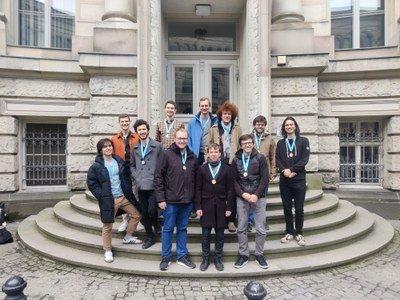BASF SE and its partners publish year six impacts for ‘Pragati’, the world’s first sustainable castor bean program
– More than 6,200 farmers now certified
– Over 6,000 hectares of generally semi-arid land repeatedly farmed according to the SuCCESS® sustainability code
– Further commitment for the world’s first sustainable castor program
BASF and its partners have published the latest results from the Pragati project for sustainable castor beans. Pragati, the world’s first sustainable castor program was founded in May 2016 by Arkema, BASF SE, Jayant Agro-Organics along with implementation partner Solidaridad.
After six years, the program has had an impressive impact to:
• Over 6,200 farmers have been trained, audited, and certified.
• Over 50,000 tons of certified castor seed have been cultivated.
• Year 6 yield is 22% higher than the yield published by the local government for this region.
• Over 6,000 hectares are now being regularly farmed in accordance with the SuCCESS sustainable castor code – more than 19,000 hectares cumulatively; Pragati farmers are increasing their land dedicated to castor farming as it is seen as a profitable crop.
• Approx. 6,300 safety kits and crop protection product boxes have been distributed free of charge.
• Water consumption has been lowered by approximately 30 percent in the demo plots where accurate measurement and control is in place.
• Farmers from more than 80 villages in North Gujarat now participate in the program.
• In 2021, more than 260 individual training sessions were held with farmers.
After the successful implementation in the previous years, the Pragati members are further committed to the world’s first sustainable castor program.
The SuCCESS code mandates regular medical monitoring for all workers. Heavy emphasis is also put on improved personal safety and chemical hygiene. In addition, the farmers are encouraged to use renewable energy, where possible.
The farmer safety kits are provided by BASF. They include disposable respirators, safety glasses and gloves, as well as easy-to-understand, picture-based instructions that show where, when and how to use each personal protection item, along with instructions on how to handle chemicals safely.
Additionally, the SuCCESS code encourages all certified farmers to ensure that their school-age children are actively enrolled in school.
The project starting point
The project was driven by a baseline survey of more than 1,000 castor farmers in Gujarat, India, where the majority of the world’s castor supply originates. The original baseline study highlighted the fact that farmers see castor as a highly remunerative and profitable crop, that is easy to grow and easy to sell.
The goal of the project has been to enable sustainable castor crop production by:
• Using good agricultural practices to increase yield and farmer income
• Efficiently using water resources and maintaining soil fertility
• Driving adoption of good waste management practices
• Enabling better health and safety practices and respecting human rights Further information can be found at: www.castorsuccess.org.
At BASF, we create chemistry for a sustainable future. We combine economic success with environmental protection and social responsibility. Around 111,000 employees in the BASF Group contribute to the success of our customers in nearly all sectors and almost every country in the world. Our portfolio comprises six segments: Chemicals, Materials, Industrial Solutions, Surface Technologies, Nutrition & Care and Agricultural Solutions. BASF generated sales of €78.6 billion in 2021. BASF shares are traded on the stock exchange in Frankfurt (BAS) and as American Depositary Receipts (BASFY) in the U.S. Further information at www.basf.com.
BASF SE
Carl-Bosch-Straße 38
67056 Ludwigshafen
Telefon: +49 (621) 60-0
Telefax: +49 (621) 60-42525
http://www.basf-ag.de
Telefon: +49 (621) 60-93253
E-Mail: alexandra.spiegel-kutschenreuter@basf.com
![]()



